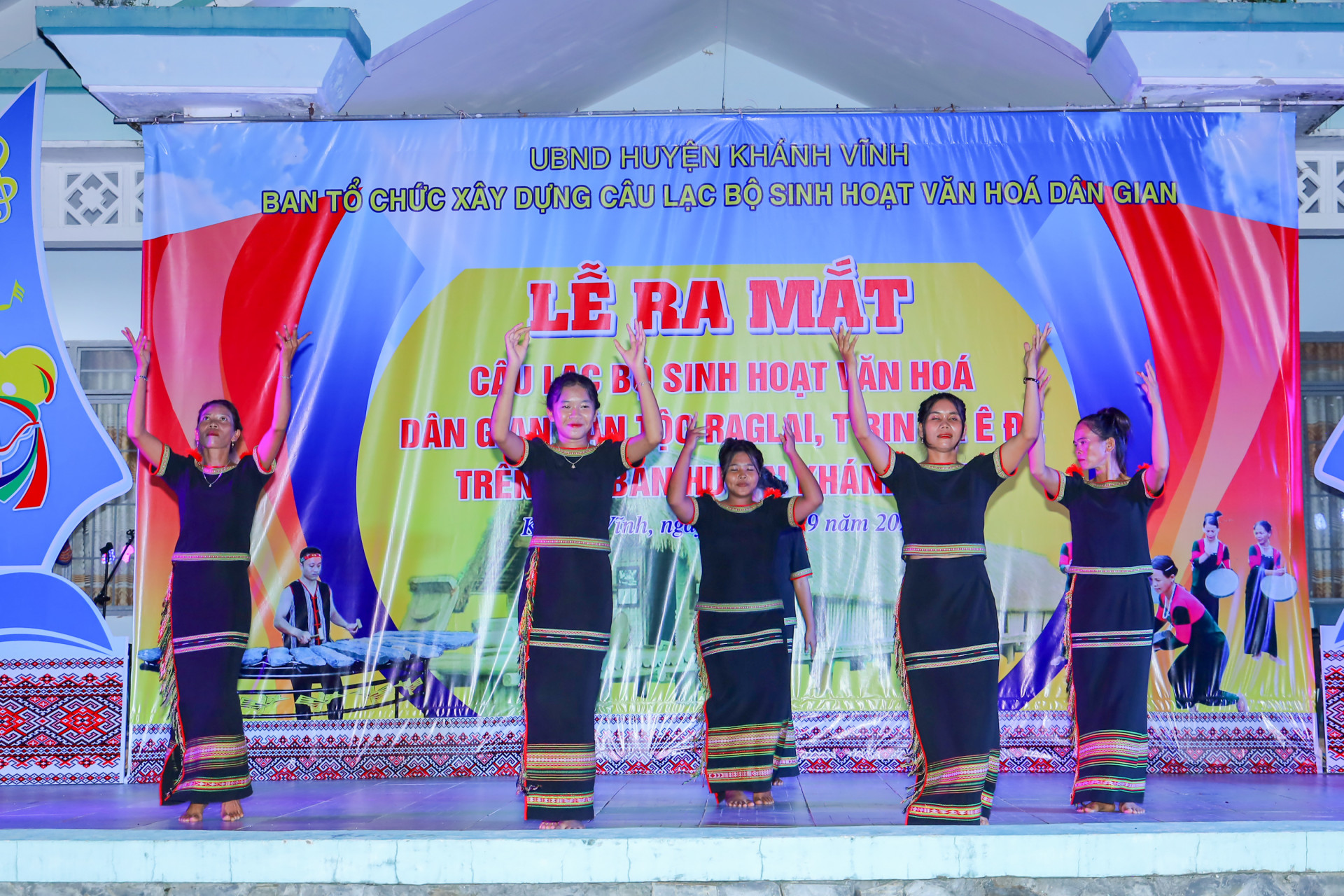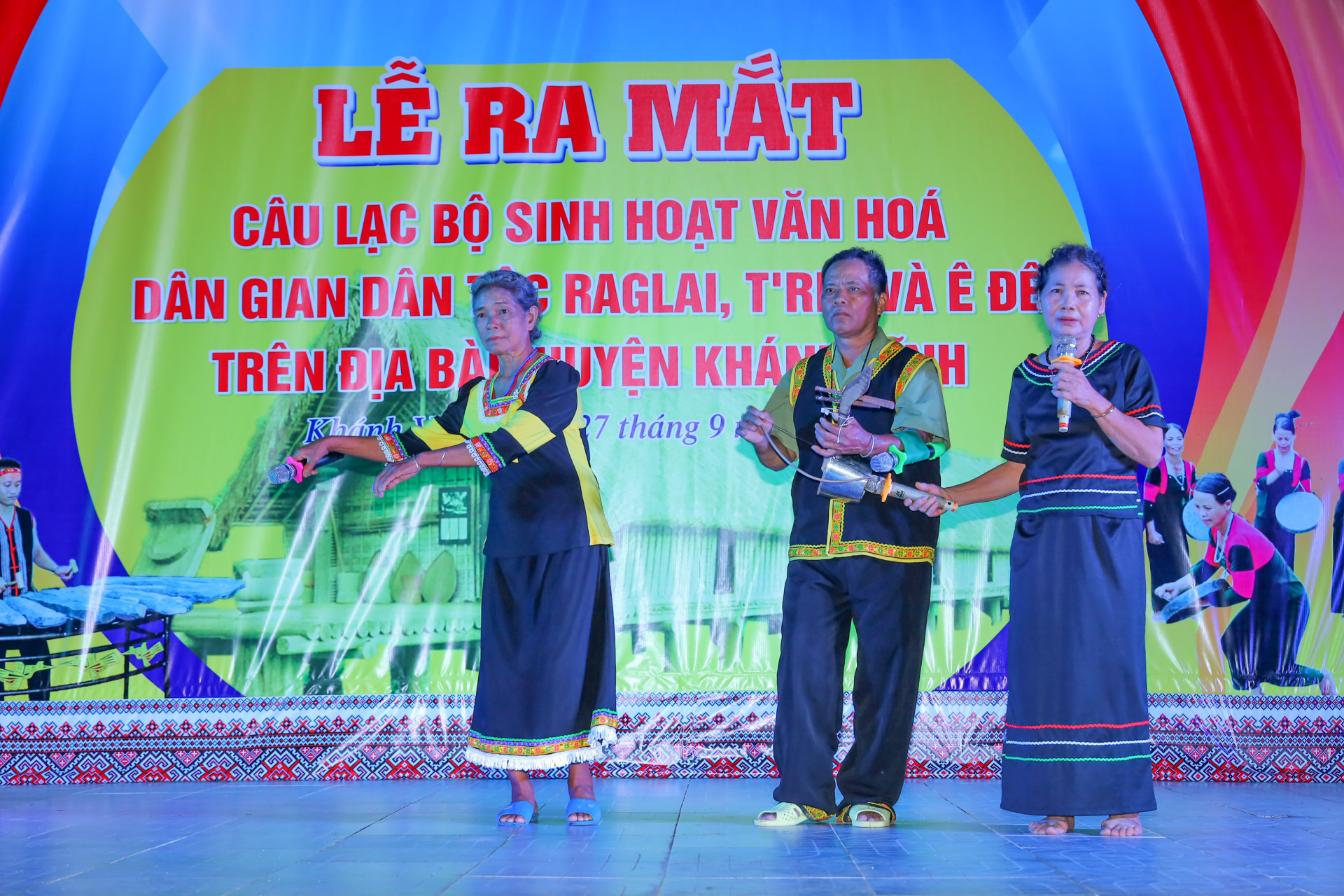In 2024, localities and authorities in Khanh Hoa Province have continued implementing activities to preserve and promote the values of folk music of ethnic minorities in the province; provide appropriate solutions to restore these intangible cultural heritages of ethnic minorities.
Cam Lam district opened Ma La (Raglai people’s traditional musical instrument) classes to for the members of folk clubs and traditional art troupes in the communes of Son Tan and Cam Phuoc Tay. Besides maintaining and promoting the use of Ma La in the life of Raglai ethnic community in the district, these classes aimed to select and nurture new talent in folk culture and art. The district integrated the work of preserving and promoting the values of folk music of ethnic minorities into festivals, contests and music programs.
 |
| Ede people in Khanh Vinh District performing a dance at a program |
Cam Ranh City has introduced some types of folk songs, folk dances, and folk music into academy program and extracurricular activities at some schools in ethnic minority areas. The city also published books and documents on traditional culture of ethnic minorities; integrated folk music into annual contest, music shows and festivals. In 2024, Khanh Vinh District, Cam Lam District and Ninh Hoa Town formed local folk culture clubs; localities with ethnic minorities supported forming traditional art troupes and their regular and quality activities.
 |
| A folk performance by Raglai people in Khanh Vinh District |
According to Le Van Hoa, deputy director of Khanh Hoa Provincial Department of Culture and Sports, in 2025, the cultural sector will continue to carry out state management in the field of cultural heritages in general and the heritages of ethnic minority groups in particular; gradually preserve and promote the value of traditional ethnic folk music and turn them into distinctive cultural tourism products; create favorable conditions for artisans, village patriarchs and people of prestige in the communities to participate in training activities and classes; maintain and improve the quality of Ma La classes; well organize cultural contests, festivals and exchange activities between ethnic groups in the province, etc.
Giang Dinh
Translated by H.N











Thông tin bạn đọc
Đóng Lưu thông tin